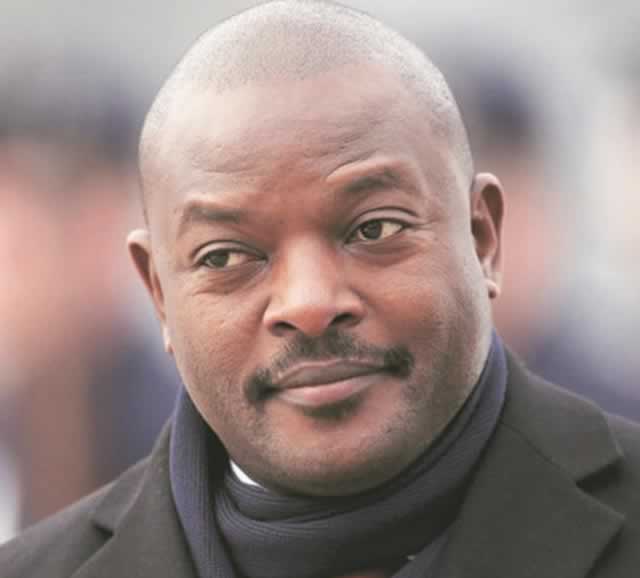Nkurunziza faces emerging armed rebellion as vote looms

NAIROBI. — Burundi’s president Pierre Nkurunziza may find an election victory he is assured of this month swiftly overshadowed by the emergence of an armed insurgency in a nation at the heart of one of Africa’s most combustible regions.
After weeks of protests against the president’s bid for a third term, a general involved in a failed coup says he is mobilising troops, grenade attacks echo round the capital and armed clashes have erupted in the north of a nation still scarred by civil war.
“We are heading for trouble,” said one senior Western diplomat, warning of a “slide back into a low-level conflict” after ethnically charged fighting ended just a decade ago.
Opponents say another five-year term is unconstitutional and are boycotting the July 21 vote, thereby assuring Nkurunziza of victory. Western donors and African neighbours have urged him to step aside.
Yet the rebel-turned-president has shrugged off the pressure, citing a court ruling saying he can run again.
“Political intervention to influence Nkurunziza to end his campaign for a third term failed,” General Leonard Ngendakumana, a leader in the abortive May 13 putsch, told Reuters. “The only way to reach this objective is to use force.”
In response, presidential spokesperson Gervais Abayeho said any threat “will meet the full force our defence and security forces”.
A flare-up in Burundi risks repercussions well beyond the borders of this tiny nation of 10 million people and will create fresh instability in a region with a history of ethnic conflict.
More than 145 000 Burundians — almost 1,5% of the population — have already fled across borders. The crisis could drag in regional players, like Rwanda, a victim of a 1994 genocide that has vowed not to let it happen again in the area.
The crisis is escalating. Grenade blasts in Bujumbura have become frequent. General Ngendakumana said his loyalists were behind assaults that targeted police, who opponents blamed for shooting and killing demonstrators. In the north of Burundi, regional officials said the army last week fought gunmen, who Ngendakumana said were loyal to the coup leaders. A provincial governor said the group had crossed from Rwanda, a charge Kigali denied.
“There is a clear move towards violent resistance,” Thierry Vircoulon, an expert at International Crisis Group, said. “The opposition considers now that armed resistance is the only option left.”
Burundi had been making a slow recovery from civil war that had pitted rebel groups from the Hutu majority against the army at the time commanded by minority Tutsis. The 12-year conflict, which erupted in 1993, killed about 300 000 people.
Such a huge toll in a small country might have made bigger headlines had it not been for a more brutal killing spree in 1994 in next door Rwanda that left 800 000 mostly Tutsis as well moderate Hutus dead. Rwanda has the same ethnic mix as Burundi.
“You can forget development,” said the Western diplomat said of Burundi’s crisis. “There will be lots of refugees and potentially the ethnic card could be taken up again.” — Reuters.










Comments